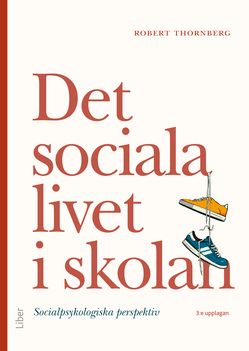

Transformations of the Swedish Welfare State
- Utgiven: 2012
- ISBN: 9780230293410
- Sidor: 322 st
- Förlag: Palgrave Macmillan
- Format: Inbunden
- Språk: Engelska
Om boken
In the early 1990s, a centre-right government declared that they would implement a 'system shift' in Sweden, often perceived as a 'model country' in the context of welfare policy discourse. The neoliberal ideology inspiring this shift had already influenced the Social Democratic government's of the mid-1980s, in its attempts to find a way out of the economic problems of the 1970s. It was not until the 1990s, however, that an increasing number of social spheres, and a substantial part of the population, started to become seriously affected by the cutbacks in the public sector and the re-organization of the welfare system. Using an analytical framework based on Michel Foucault'sconcept of governmentality, this volume contributes unique case studies of the ongoing transformations of the Swedish welfare state. Contributors with long research experience in their respective fields take a close look at what kind of changes have taken place, what their rationalities were, and what the effects have been.
Åtkomstkoder och digitalt tilläggsmaterial garanteras inte med begagnade böcker
Mer om Transformations of the Swedish Welfare State (2012)
I januari 2012 släpptes boken Transformations of the Swedish Welfare State skriven av B Larsson, M Letell, H Thrn. Den är skriven på engelska och består av 322 sidor. Förlaget bakom boken är Palgrave Macmillan som har sitt säte i London.
Köp boken Transformations of the Swedish Welfare State på Studentapan och spara pengar.
Referera till Transformations of the Swedish Welfare State
Harvard
Larsson, B., Letell, M. & Thrn, H. (2012). Transformations of the Swedish Welfare State. Palgrave Macmillan.
Oxford
Larsson, B, Letell, M & Thrn, H, Transformations of the Swedish Welfare State (Palgrave Macmillan, 2012).
APA
Larsson, B., Letell, M., & Thrn, H. (2012). Transformations of the Swedish Welfare State. Palgrave Macmillan.
Vancouver
Larsson B, Letell M, Thrn H. Transformations of the Swedish Welfare State. Palgrave Macmillan; 2012.



















